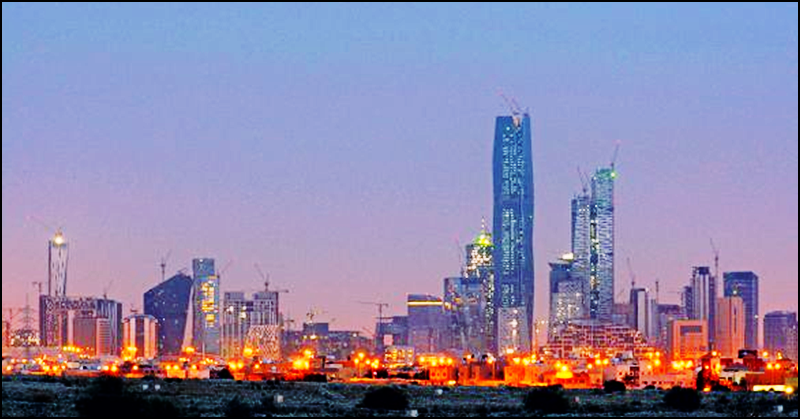Travelling to new places for the first time will require some level of adjustment in the case of the visitor, as we very well know that no two countries are the same no matter how close they are in the region, or similar they are in their form of government, society, or lineage.
It is for this reason that we need to be informed and sensitive enough to do what the locals expect us to, when sharing the experience of being or living in the same country as unique individuals. And when visiting the Kingdom of Saudi Arabia, which is considered as one of the most culturally diverse and socially conservative countries in the Gulf Region, there are certain things that we need to take note of.

Basic Things to Note for First-Time Travellers in Saudi Arabia
And while the purpose of travelling is to get a more in-depth learning experience of other cultures, knowing some of the basics beforehand will oftentimes keep you out of trouble and help you enjoy your trip in a country such as Saudi Arabia, especially when it’s only your first visit to the Kingdom:
Society
- Islam is Saudi’s official religion, and the curriculum in the Kingdom is focused on the study of their religion, as no other religion or form of faith is tolerated or to be practiced inside the Kingdom.
- Unlike other countries in the region, Saudi Arabia does not have a constitution; the state is instead governed according to Sharia (Islamic Law).
- Saudi’s form of government is a monarchy, with the King serving as both the Head of State and Government. The current king is King Abdullah bin Abdul Aziz Al Saud, who is also called the Custodian of the Two Holy Mosques.
- Saudi Arabia is split into 13 administrative regions, and these are further divided into 118 governorates.
- In Saudi Arabia, punishments for serious crimes include amputation, beheading, hanging, and stoning.
- Abdul Aziz ibn Saud named his captured territories Saudi Arabia after unifying them in 1932.
Customs and Traditions
- Men wear white cotton robes called a thob with a colorful kerchief called a ghutra as their headgear.
- Women wear a black robe known as an abaya while their heads are covered by a black veil.
- Traditionally, men were the only ones allowed to drive in Saudi Arabia. Women were not allowed to drive until 2013 or even travel abroad without a male relative’s or spouse’s approval.
- Aside from a black veil, women traditionally wear a mask, known as a burka or batula, to cover their faces in public. Meanwhile, Saudi men wear an Igal, or two intertwined black cords that form a ring, on their heads.
- Any type or form of alcoholic product is strictly forbidden inside the kingdom.
- Men and women cannot be seen together in public that even in elevators, men and women should not be seen together or else they face interrogations from the Mutaweens, the Islamic Religious Police. Only in hospitals can men mingle with women in public.
- Men take pride in having thick beards and moustaches, as these represent their devotion to their faith and to show that they are pious and religious. In Saudi society, the longer and thicker the beard, the more pious a man is.
- The most common food in the Kingdom is kabsa, a rice dish mixed with raisins, nuts, and spices.
- Pork is strictly forbidden in the Kingdom; no one can sell or eat pork.
Living in Saudi
- Diesel is much cheaper than water; the price of a litre of diesel is more or less half the price of a litre of water.
- Even though taxis have meters to measure the fare for the trip, it is quite common to bargain the price for a certain distance with the driver.
- Commercial establishments and public places stop activity during times when “salah” is practiced. Salah is Arabic for prayer.
- In Saudi Arabia, there is no income tax deducted from salary coming from jobs in the Kingdom.
- While there are no direct taxes imposed in the Kingdom, a 5% value-added tax (VAT) has already been put into effect since 2018, making Saudi Arabia together with the UAE as the first GCC countries to impose VAT in the region.
- Foreigners must carry their work permit at all times to avoid question and interrogation by police if caught without one.
- In Saudi Arabia, the work week starts on Saturday and ends on Wednesday. Meanwhile, Thursdays and Fridays are considered the official weekend.
- The way of writing is from right to left as opposed to the Western way of writing, which is from left to right.
- “Sadik” is the Arabic word for friend; however, it is used casually that everyone calls each other Sadik, even if they’ve just met or simply to greet each other in public.
- Most importantly, religion is a taboo topic. Religion is extremely sacred in Saudi Arabia.
And there we have it, even if we’ve only covered the basics, you’ll find these things extremely helpful in certain situations at work, or even during a visit or a vacation in the Kingdom.
ALSO READ: Here’s What to Expect on Your Visit to Saudi Arabia
